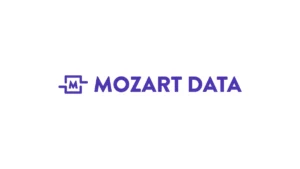The benefits of implementing a modern data stack are enormous — centralized and organized data allows you to tackle more complex and impactful analysis, while building trust and a data-driven culture.
If you delay implementation for too long, you’re missing out on the above, while also encountering a number of consequences.

Why company structure is important
The right answer to “who should own our data stack?” is going to vary based on how large your company is. Larger companies may have the use and resources for a dedicated data team, while smaller companies often do not choose to hire data analysts or scientists with their earlier hires — but both large and small companies need data infrastructure.
Larger organizations
If a larger company doesn’t have a modern data stack yet, it likely means they’ve pushed implementation off longer than they should and they’re already running into the limitations of reporting in their various siloed tools. It’s also likely that a number of people are working with the data, just inefficiently. But, they might have the personnel resources for a dedicated data team that would logically own the data stack. Many organizations choose to make data hires and then let them guide the process of implementing a modern data stack.
What does this look like in practice? In organizations with a dedicated data team, there’s typically less emphasis on having advanced technical users on other teams around the company. Product managers or RevOps team members might have strong analytical skills, but they’re likely not going to use SQL frequently if they can draw upon the data team for data projects.
Smaller companies
At a smaller company, dedicated data teams are less common. If there isn’t a data team, members of other teams need to use the modern data stack to get what they need.
Instead of the data team owning the data stack, someone else will need to make sure this is taken care of. Specific personnel capabilities might influence this decision (and we’ll touch on that more in the next section). If there’s one team that has the largest need for the modern data stack, they often lead the way. We’ve seen that dynamic with our customers.
But to be clear, small companies shouldn’t write off the idea of hiring someone with “data” in their title. Quite the opposite — if your business growth depends on answers to more complex questions, don’t put off or deprioritize your first data analyst hire.
Consider your personnel resources
The skill sets of your team matter a lot, especially if you don’t have the resources for a dedicated data team.
Small companies often rely on an early hire with a strong technical background, like their CTO or an engineering lead. If they have experience with data stacks, they can take ownership and support other teams without that strong technical background.
But, depending on the modern data stack solution chosen, less technical expertise or background is necessary. An out-of-the-box option like Mozart Data comes with a great deal of support, so ownership of the data stack is more about willingness to learn and an understanding of how data could help different teams than it is about experience troubleshooting pipelines.
Skills aren’t the only consideration. If your CTO or engineering lead has the skill set to own your data stack, but doesn’t have the bandwidth to rapidly troubleshoot an error that’s impacting another department, there’s obviously an issue. If current skills and time resources aren’t aligned, you have two options. One, crosstrain someone else (or multiple other people) so their department can own the data stack. Two, hire someone who will own the data stack.
Think about your data projects
As we mentioned before, sometimes ownership of your data stack should come down to priority data projects. Is there one team, like Marketing or Product Development, that has the most pressing need? In that case, especially when paired with a user-friendly, out-of-the-box solution like Mozart, that team may very well be the one who should own the data stack and start getting data projects rolling.
But what if many teams have one or two pressing data needs? In this case, it’s no different than any other personnel decision. You don’t want to push the project off indefinitely, so you should default back to identifying someone with the skills and time to take this project over.
This decision isn’t set in stone
Who should own your data stack can be an important decision, but it’s also not a permanent one. We’ve seen customers start with one team managing their data stack and spearheading data projects — building out reporting dashboards, helping other teams get access to what they need, etc. — until the company grows to the point where that no longer makes the most sense. From there, more data professionals can be brought onboard to focus on more complicated or impactful projects, and they can take over the data stack. You have the ability to adapt as you go.
Our customer Modern Treasury specifically wanted to avoid hiring data engineers, which is why they chose to implement Mozart’s modern data stack. As their data needs grew, they hired an analytics engineer and a data scientist. Read more about their experience implementing a data stack here.

